Orthodoxy as Solidarity
Members
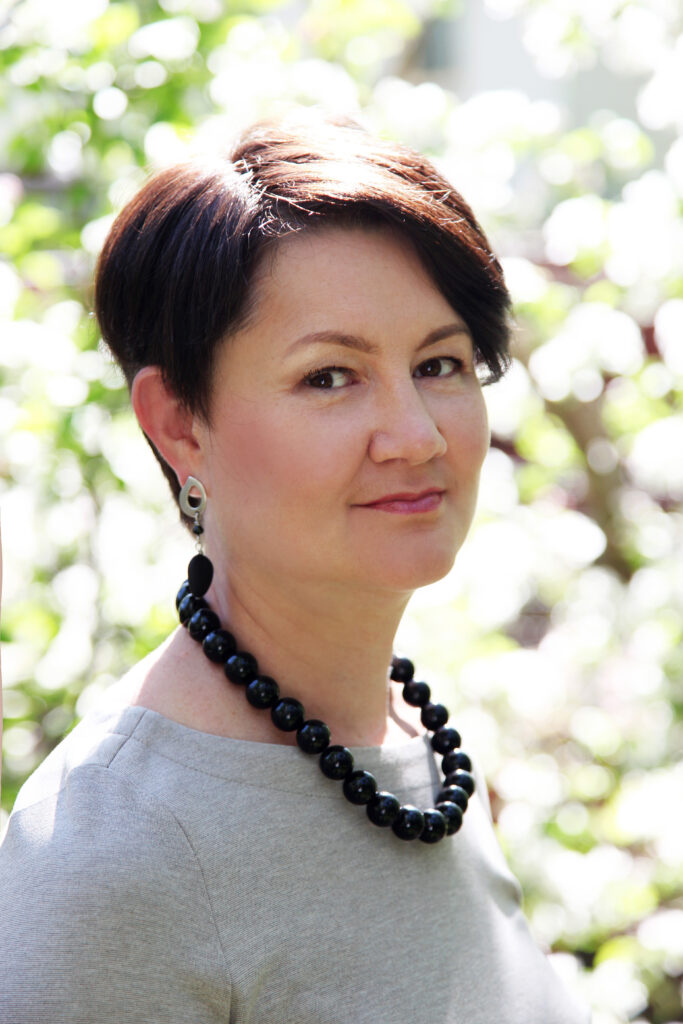 Irina Paert is Principal Investigator of the project. An associate professor in the School of Theology and Religious Studies at the University of Tartu (PhD the University of Essex (1998), Simon Research Fellow at the University of Manchester (2000) and lecturer in the University of Wales (2001-2006). Her research focuses on the historical and theological analysis of the forms of social and symbolic solidarity within the Orthodox Church in the Baltic and especially in Estonia between late tsarist era to the end of the 1930s, including the clerical congresses, lay-based renewal movements such as Russian Student Christian Movement. She also has interest in memorial solidarities around memory of martyrs and new-martyrs, which brings her research into the present day Estonian Orthodoxy. She is the author of Old Believers, Religious Dissent and Gender in Russia, 1760-1850 (Manchester, 2003) and Spiritual Elders: Charisma and Tradition in Russia (DeKalb, 2010), and editor of Orthodoxy in the Baltic: Politics, Religion and Education, 17840-1930 (in Russian, Tartu, 2018). She has edited several journal special issues: the New Literary Review (Semiotics of Juri Lotman and film analysis, Novoe literaturnoe obozrenie, 5: 147, 2017), co-edited with Riho Altnurme Usuteaduslik Ajakiri (“Religion and resistance”, UA, 64:1, 2013), with Dr White Canadian Slavonic Papers (“Reimagining the Diocese: Administrative, Sacred, and Imperial Space in the Russian Empire”. CSP, Vol. 62, no. 3-4, 2020). Paert is a co-chair of IOTA (International Orthodox Theological Association) group Orthodox Asceticism and Spirituality, a member of a research network of Institute for Academic Study of Eastern Christianity (Prof Tolstoj, Vrije Universiteit Amsterdam). Since 2014 Paert organised annual conferences with School of St John and the Arvo Pärt Centre.
Irina Paert is Principal Investigator of the project. An associate professor in the School of Theology and Religious Studies at the University of Tartu (PhD the University of Essex (1998), Simon Research Fellow at the University of Manchester (2000) and lecturer in the University of Wales (2001-2006). Her research focuses on the historical and theological analysis of the forms of social and symbolic solidarity within the Orthodox Church in the Baltic and especially in Estonia between late tsarist era to the end of the 1930s, including the clerical congresses, lay-based renewal movements such as Russian Student Christian Movement. She also has interest in memorial solidarities around memory of martyrs and new-martyrs, which brings her research into the present day Estonian Orthodoxy. She is the author of Old Believers, Religious Dissent and Gender in Russia, 1760-1850 (Manchester, 2003) and Spiritual Elders: Charisma and Tradition in Russia (DeKalb, 2010), and editor of Orthodoxy in the Baltic: Politics, Religion and Education, 17840-1930 (in Russian, Tartu, 2018). She has edited several journal special issues: the New Literary Review (Semiotics of Juri Lotman and film analysis, Novoe literaturnoe obozrenie, 5: 147, 2017), co-edited with Riho Altnurme Usuteaduslik Ajakiri (“Religion and resistance”, UA, 64:1, 2013), with Dr White Canadian Slavonic Papers (“Reimagining the Diocese: Administrative, Sacred, and Imperial Space in the Russian Empire”. CSP, Vol. 62, no. 3-4, 2020). Paert is a co-chair of IOTA (International Orthodox Theological Association) group Orthodox Asceticism and Spirituality, a member of a research network of Institute for Academic Study of Eastern Christianity (Prof Tolstoj, Vrije Universiteit Amsterdam). Since 2014 Paert organised annual conferences with School of St John and the Arvo Pärt Centre.
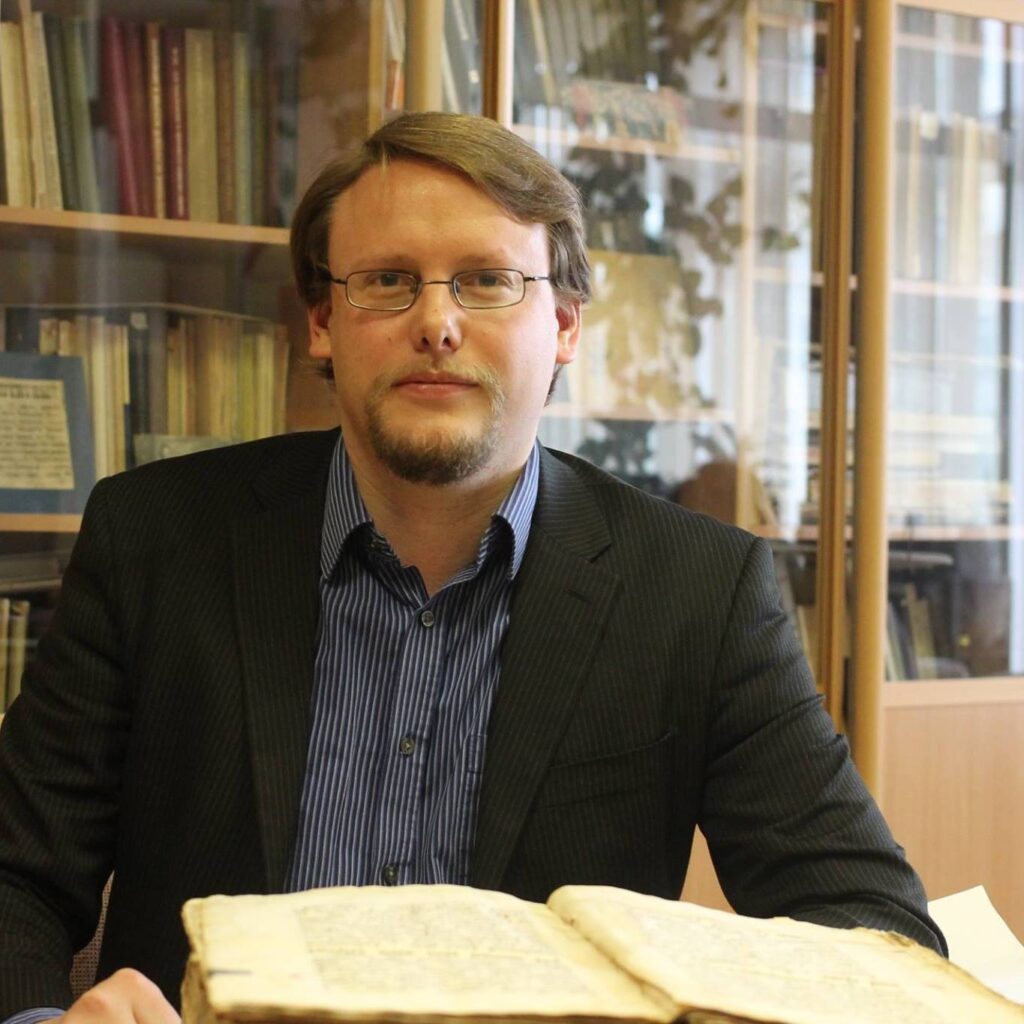 James White is a research fellow at the School of Theology and Religious Studies at the University of Tartu. He received his PhD in 2014 from the European University Institute (Florence, Italy). He has published numerous articles on Orthodoxy in the Russian Empire, including in The Russian Review, Journal of Ecclesiastical History, Journal of Religious History, and European History Quarterly. His first monograph Unity in Faith? Edinoverie, Russian Orthodoxy, and Old Belief, 1800-1918 was published in 2020 by Indiana University Press. He is the chief editor of the volume Kontseptsii konflikta i soglasiia v Rossiiskoi obshchestvennoi mysli i praktiki (XVIII-XX vv.) (Ural University Press: Ekaterinburg, 2020), co-editor of a special issue of Canadian Slavonic Papers, (“Reimagining the Diocese: Administrative, Sacred, and Imperial Space in the Russian Empire”. Vol. 62, no. 3-4, 2020, pp. 234-398). He is the co-founder of balticorthodoxy.com, an online resource for Baltic religious history.
James White is a research fellow at the School of Theology and Religious Studies at the University of Tartu. He received his PhD in 2014 from the European University Institute (Florence, Italy). He has published numerous articles on Orthodoxy in the Russian Empire, including in The Russian Review, Journal of Ecclesiastical History, Journal of Religious History, and European History Quarterly. His first monograph Unity in Faith? Edinoverie, Russian Orthodoxy, and Old Belief, 1800-1918 was published in 2020 by Indiana University Press. He is the chief editor of the volume Kontseptsii konflikta i soglasiia v Rossiiskoi obshchestvennoi mysli i praktiki (XVIII-XX vv.) (Ural University Press: Ekaterinburg, 2020), co-editor of a special issue of Canadian Slavonic Papers, (“Reimagining the Diocese: Administrative, Sacred, and Imperial Space in the Russian Empire”. Vol. 62, no. 3-4, 2020, pp. 234-398). He is the co-founder of balticorthodoxy.com, an online resource for Baltic religious history.
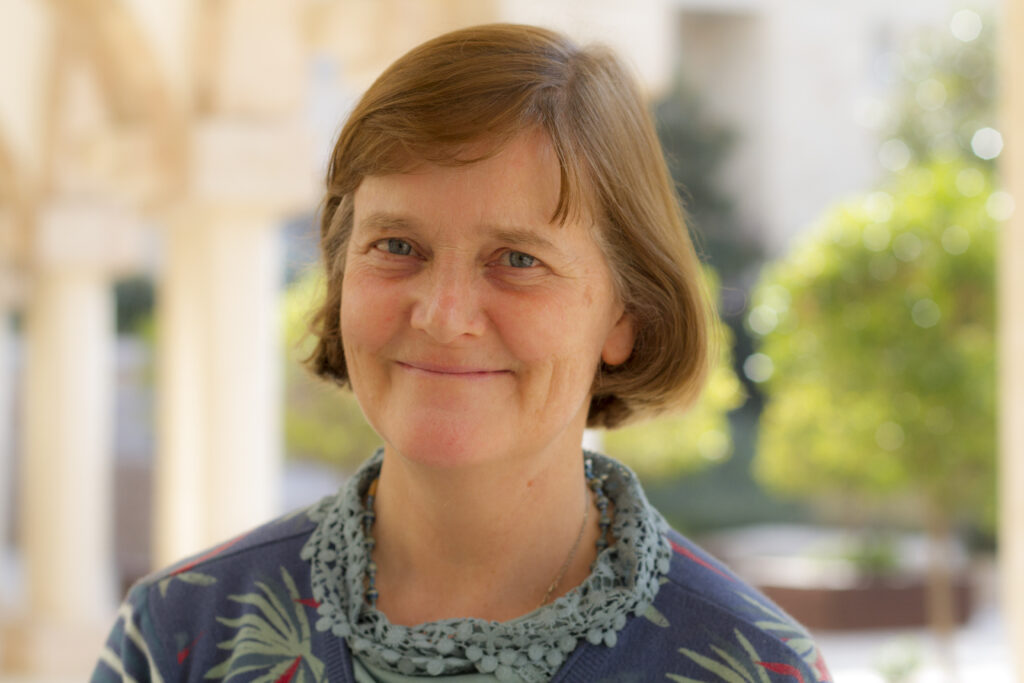 Alison Ruth Kolosova gained her BA in Russian and French (Durham University, UK) and later studied Theology at the St Sergius Orthodox Theological Institute, Paris. Her PhD thesis was written under the supervision of Professor Andrew Louth at the Department of Theology and Religion, Durham University, UK. It focused on the Kazan linguist Nikolai Il`minskii and the influence of Orthodox missions on the ethnic and religious identity of the Turkic and Finno-Ugric peoples of Russia’s Volga-Kama region in the late 19th and early 20th centuries. From 2018 to 2020, she has been a postdoctoral research fellow at the Institute for Cultural Studies, University of Tartu, Estonia. She is Assistant Editor of SALT: Crossroads of Religion and Culture, an Orthodox journal of intercultural theology, dialogue and mission, and co-chairs the Missiology Group of the International Orthodox Theological Association. Her research interests include the history, culture and religion of the Turkic and Finno-Ugric peoples of Russia’s Volga-Kama region, the history, praxis and theology of Orthodox Christian mission, the Russian Orthodox Church in the 19th and early 20th centuries, in particular the movement for reform and conciliarity, and the consequences and reception of the 1917-1918 All-Russian Church Council.
Alison Ruth Kolosova gained her BA in Russian and French (Durham University, UK) and later studied Theology at the St Sergius Orthodox Theological Institute, Paris. Her PhD thesis was written under the supervision of Professor Andrew Louth at the Department of Theology and Religion, Durham University, UK. It focused on the Kazan linguist Nikolai Il`minskii and the influence of Orthodox missions on the ethnic and religious identity of the Turkic and Finno-Ugric peoples of Russia’s Volga-Kama region in the late 19th and early 20th centuries. From 2018 to 2020, she has been a postdoctoral research fellow at the Institute for Cultural Studies, University of Tartu, Estonia. She is Assistant Editor of SALT: Crossroads of Religion and Culture, an Orthodox journal of intercultural theology, dialogue and mission, and co-chairs the Missiology Group of the International Orthodox Theological Association. Her research interests include the history, culture and religion of the Turkic and Finno-Ugric peoples of Russia’s Volga-Kama region, the history, praxis and theology of Orthodox Christian mission, the Russian Orthodox Church in the 19th and early 20th centuries, in particular the movement for reform and conciliarity, and the consequences and reception of the 1917-1918 All-Russian Church Council.
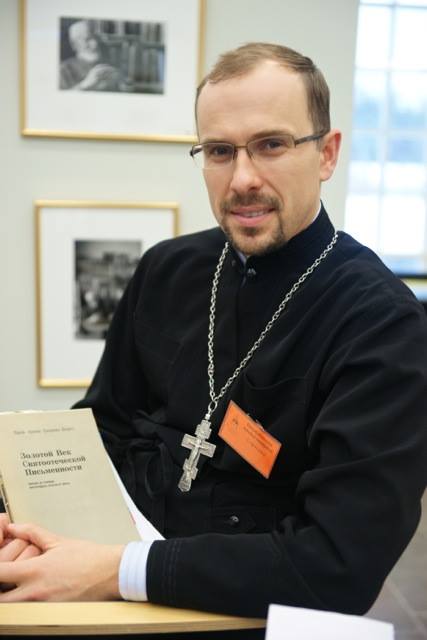 Andrei Sõtšov is a Research Fellow in the School of Theology & Religious Studies at the University of Tartu and lecturer of Orthodox Church History at the Institute of Theology of the Estonian Evangelical Lutheran Church (2015 until the present). He obtained his PhD (theol) in 2009 from the University of Tartu. 2011-2012 he belonged as Research Fellow to the research group of religious studies at the Centre of Excellence of Cultural Theory (CECT). He is a specialist on 20th century orthodox church history during Soviet time, especially in context of church-state-society relations. His research interests include influence of Soviet religious policy upon orthodox church, secularization and interconfessional relations during Soviet time in Estonia. Member of International Network of Baltic Church Historians (INBCH, http://www.helsinki.fi/teol/pro/inbch/) and Estonian Society of Church History (ESCH, http://www.kirikulugu.ee). Co-Author of History of Estonian Ecumenism (2009), textbook of Estonian church history Eesti kiriku- ja religioonilugu (2018). His work associated with the Orthodoxy as Solidarity project focuses on the Constructing Soviet Solidarity in the Orthodox Diocese of Tallinn in 1945–1989.
Andrei Sõtšov is a Research Fellow in the School of Theology & Religious Studies at the University of Tartu and lecturer of Orthodox Church History at the Institute of Theology of the Estonian Evangelical Lutheran Church (2015 until the present). He obtained his PhD (theol) in 2009 from the University of Tartu. 2011-2012 he belonged as Research Fellow to the research group of religious studies at the Centre of Excellence of Cultural Theory (CECT). He is a specialist on 20th century orthodox church history during Soviet time, especially in context of church-state-society relations. His research interests include influence of Soviet religious policy upon orthodox church, secularization and interconfessional relations during Soviet time in Estonia. Member of International Network of Baltic Church Historians (INBCH, http://www.helsinki.fi/teol/pro/inbch/) and Estonian Society of Church History (ESCH, http://www.kirikulugu.ee). Co-Author of History of Estonian Ecumenism (2009), textbook of Estonian church history Eesti kiriku- ja religioonilugu (2018). His work associated with the Orthodoxy as Solidarity project focuses on the Constructing Soviet Solidarity in the Orthodox Diocese of Tallinn in 1945–1989.
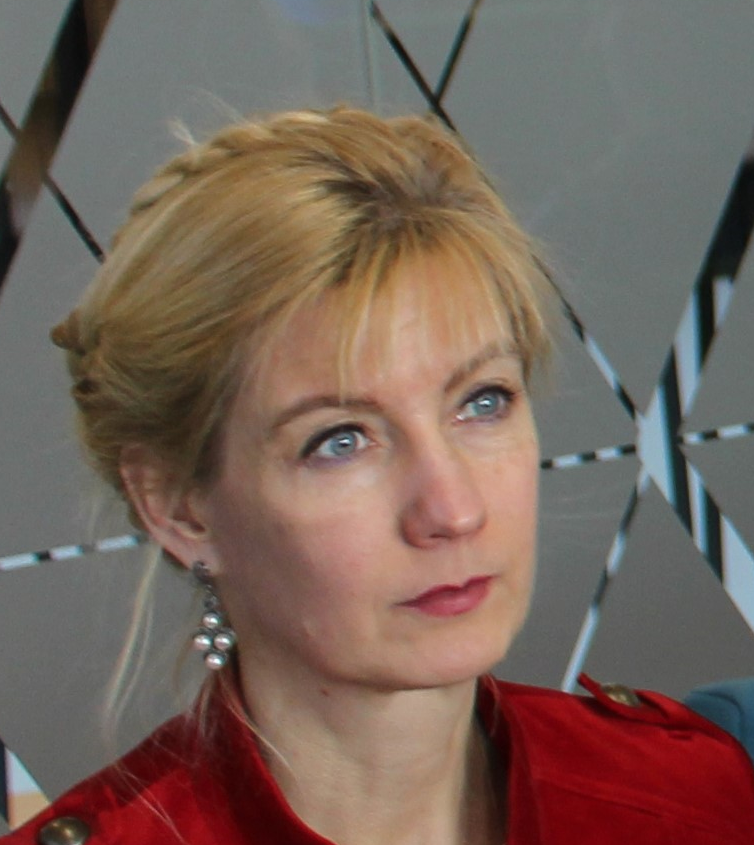 Liina Eek is a programme manager in Estonian Research Council. Since finishing her PhD in 2017 (Catechesis and Beliefs among Contemporary Estonian-Speaking Orthodox), University of Tartu, School of Theology and Religious Studies, she has not been affiliated to any research institute, but has continued to publish articles as a hobby-researcher. Her research focus is contemporary Estonian-speaking Orthodox people, their beliefs and views on orthodoxy and Orthodox theology. She has published articles in Estonian only (some of them with English summaries) and made some presentations in different conferences (for example, EASR). She has edited a collection of articles about Orthodoxy in Estonia „Mitut usku Eesti IV. Õigeusu eri“.
Liina Eek is a programme manager in Estonian Research Council. Since finishing her PhD in 2017 (Catechesis and Beliefs among Contemporary Estonian-Speaking Orthodox), University of Tartu, School of Theology and Religious Studies, she has not been affiliated to any research institute, but has continued to publish articles as a hobby-researcher. Her research focus is contemporary Estonian-speaking Orthodox people, their beliefs and views on orthodoxy and Orthodox theology. She has published articles in Estonian only (some of them with English summaries) and made some presentations in different conferences (for example, EASR). She has edited a collection of articles about Orthodoxy in Estonia „Mitut usku Eesti IV. Õigeusu eri“.
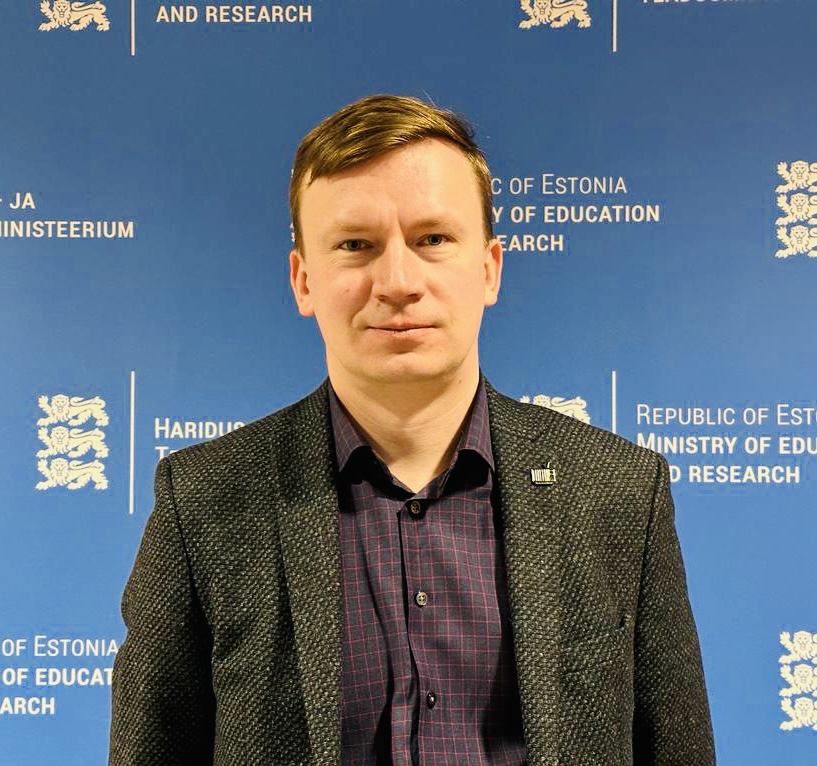
Andrey Shishkov is a Ph. D. student in the School of Theology and Religious Studies at University of Tartu. He is a specialist in contemporary ecclesiology and political theology. His research interests include the issue of supreme power in the Orthodox church, Orthodox conciliarity, inter-Orthodox relations, Orthodox political and public theology etc. He is an author of the analytical concepts of conservative ecumenism and dark ecclesiology. In 2011-2012 he was coordinator of the project “Postgraduate Intensive Courses on Modern Science for Orthodox Theology Professors of Russia, Ukraine and Belarus” and in 2013-2014 – co-leader of the project “The Development of a New Methodology for Dialogue and Cooperation between Science and Religion in Russia,” both supported by John Templeton Foundation. In 2017-2020 – invited expert in the international academic project “Postsecular Conflicts” (Innsbruck University, Austria) and from 2019 – in the project “Eastern Orthodoxy and Human Rights” (Fordham University, USA). Since 2019 he is a member of the Ecclesiology Group steering committee of the International Orthodox Theological Association. From 2010 to 2020 worked at the Synodal Biblical and Theological Commission of the Russian Orthodox Church (2015–2020 as a secretary of Commission). From 2013 to 2020 he was a research fellow and lecturer at the Ss. Cyril and Methodius Institute for Post-Graduate Studies. Taught ecclesiology, introduction in political theory and political theology.
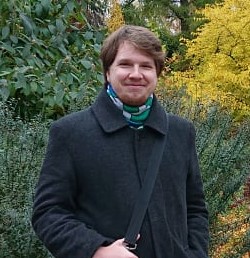 Albert Ludwig Roine is a Ph. D. student in the School of Theology and Religious Studies at University of Tartu. He is an archivist specializing in automatic text recognition in the National Archives of Estonia. He is also a board member of the Association of Estonian Archivists. He has written his Master’s dissertation on the Vormsi Orthodox priest Jakob Vaarask in University of Tartu.
Albert Ludwig Roine is a Ph. D. student in the School of Theology and Religious Studies at University of Tartu. He is an archivist specializing in automatic text recognition in the National Archives of Estonia. He is also a board member of the Association of Estonian Archivists. He has written his Master’s dissertation on the Vormsi Orthodox priest Jakob Vaarask in University of Tartu.
Former Project Members
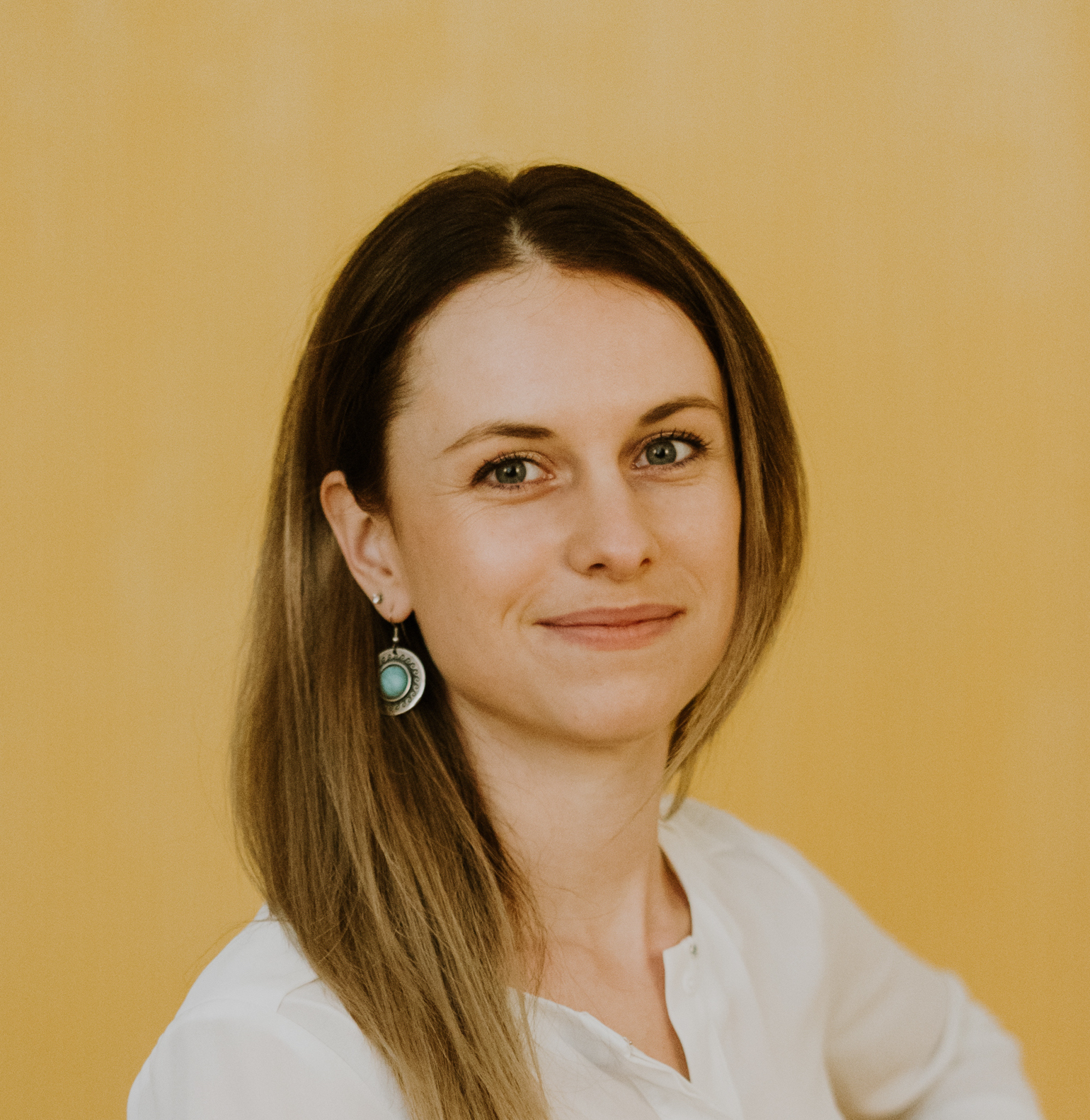 Catherine Gibson is a Lecturer in East European and Eurasian studies at the Johan Skytte Institute of Political Studies, University of Tartu. She obtained her PhD in 2019 from the European University Institute in Florence. Her research focuses on the history of nationalism, borders, ethnolinguistic and religious minorities, and science (especially cartography and statistics) in the Russian Empire. She is co-editor (with Tomasz Kamusella and Motoki Nomachi) of The Palgrave Handbook of Slavic Languages, Identities and Borders (Palgrave 2016) and author of Geographies of Nationhood: Cartography, Science and Society in the Russian Imperial Baltic (Oxford University Press 2022). She is also book series editor of Politics and Society in the Baltic Sea Region (Tartu University Press) and an editorial coordinator for the Journal of Baltic Studies. In 2019 she was awarded the Emerging Scholars Grant from the Association for the Advancement of Baltic Studies and in 2020 she was awarded the James Kaye Memorial Prize for the Best Thesis in History and Visuality. Her work associated with the Orthodoxy as Solidarity project focuses on the intersections between religion and national indifference in the Baltic provinces of the Russian Empire. Catherine worked on the project in 2021-22.
Catherine Gibson is a Lecturer in East European and Eurasian studies at the Johan Skytte Institute of Political Studies, University of Tartu. She obtained her PhD in 2019 from the European University Institute in Florence. Her research focuses on the history of nationalism, borders, ethnolinguistic and religious minorities, and science (especially cartography and statistics) in the Russian Empire. She is co-editor (with Tomasz Kamusella and Motoki Nomachi) of The Palgrave Handbook of Slavic Languages, Identities and Borders (Palgrave 2016) and author of Geographies of Nationhood: Cartography, Science and Society in the Russian Imperial Baltic (Oxford University Press 2022). She is also book series editor of Politics and Society in the Baltic Sea Region (Tartu University Press) and an editorial coordinator for the Journal of Baltic Studies. In 2019 she was awarded the Emerging Scholars Grant from the Association for the Advancement of Baltic Studies and in 2020 she was awarded the James Kaye Memorial Prize for the Best Thesis in History and Visuality. Her work associated with the Orthodoxy as Solidarity project focuses on the intersections between religion and national indifference in the Baltic provinces of the Russian Empire. Catherine worked on the project in 2021-22.
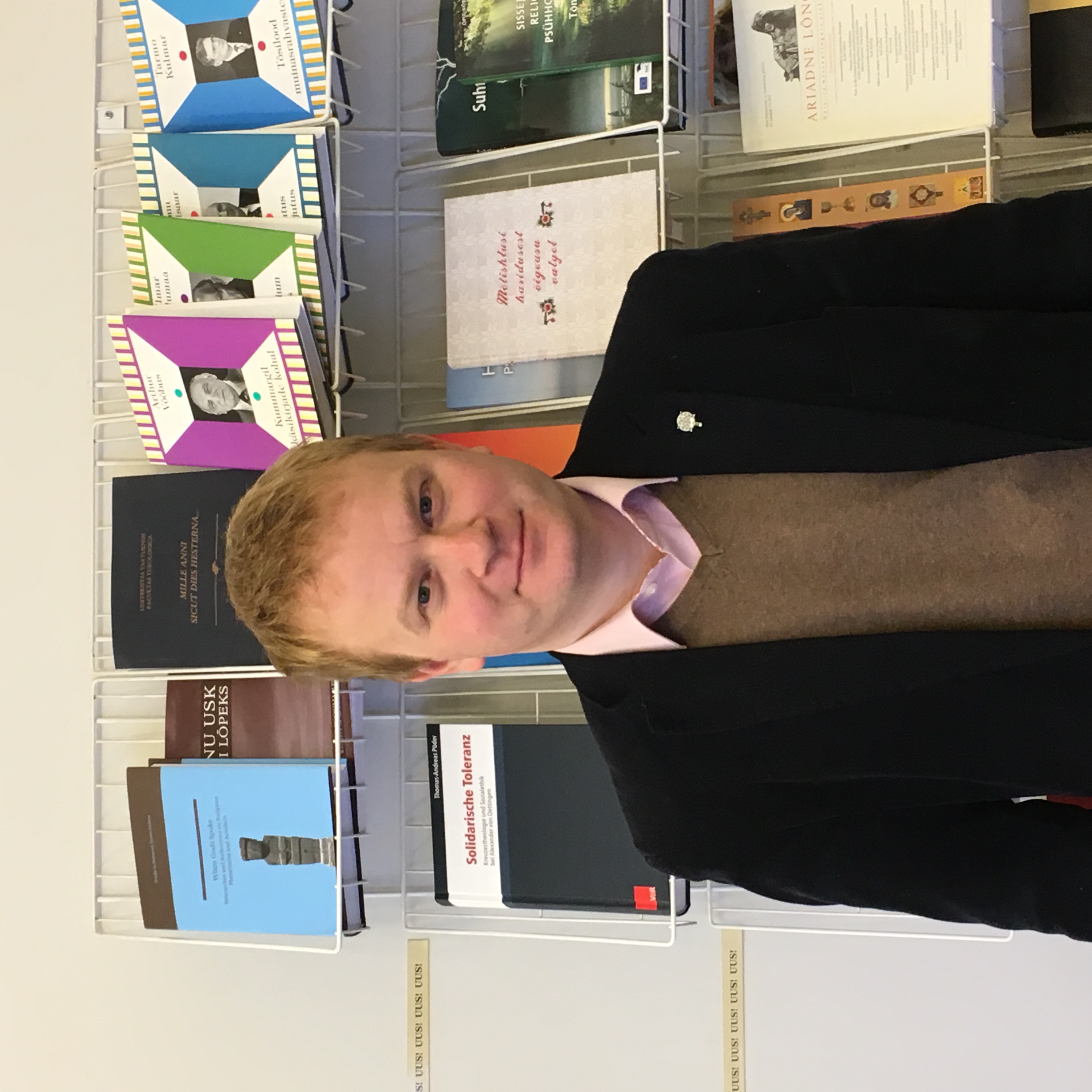 Priit Rohtmets is an Associate Professor of Church History at the University of Tartu and a Professor of Church History at the Institute of Theology of the Estonian Evangelical Lutheran Church. In his research Rohtmets has focused on Estonian, Baltic and Scandinavian church history in the nineteenth and twentieth century, the relationship between nationalism and religion in Northern Europe, the ecumenical movement in the Baltic States. He is an author and editor of several books about Estonian church history and ecumenical movement. Priit worked on the project in 2021-22.
Priit Rohtmets is an Associate Professor of Church History at the University of Tartu and a Professor of Church History at the Institute of Theology of the Estonian Evangelical Lutheran Church. In his research Rohtmets has focused on Estonian, Baltic and Scandinavian church history in the nineteenth and twentieth century, the relationship between nationalism and religion in Northern Europe, the ecumenical movement in the Baltic States. He is an author and editor of several books about Estonian church history and ecumenical movement. Priit worked on the project in 2021-22.
International Advisers
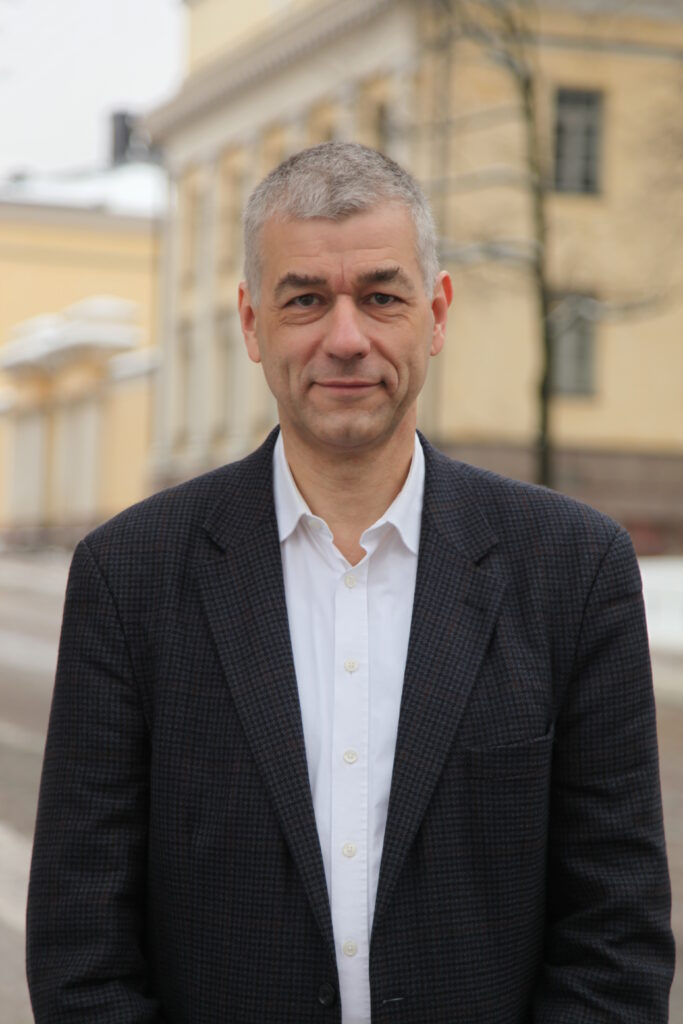 Thomas Bremer teaches Ecumenical Theology, Eastern Churches Studies and Peace Studies at the Faculty of Catholic Theology, University of Münster, Germany. His areas of interest are Orthodoxy in Eastern Europe and in the Balkans, the theory of ecumenical processes, and the role of religious communities in conflicts. He has widely published on these issues.
Thomas Bremer teaches Ecumenical Theology, Eastern Churches Studies and Peace Studies at the Faculty of Catholic Theology, University of Münster, Germany. His areas of interest are Orthodoxy in Eastern Europe and in the Balkans, the theory of ecumenical processes, and the role of religious communities in conflicts. He has widely published on these issues.
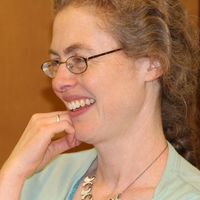 Heather Coleman is Canada Research Chair in Russian Imperial History at the University of Alberta. I am an historian of Russia, with a special interest in religion and modernization in the nineteenth and twentieth centuries. Between 2011 and 2020, she served as editor of Canadian Slavonic Papers/Revue canadienne des slavistes. She is also the director of the Program on Religion and Culture at the Canadian Institute of Ukrainian Studies. Her first book, Russian Baptists and Spiritual Revolution, 1905-1929 (Indiana, 2005) received honourable mention for the Wallace K. Ferguson Prize of the Canadian Historical Association in 2006. She is also the co-editor, with Mark D. Steinberg, of Sacred Stories: Religion and Spirituality in Modern Russia (Indiana 2007), and editor of Orthodox Christianity in Imperial Russia: A Source Book on Lived Religion (Indiana, 2014). Dr. Heather Coleman is examining the role of religion in modern nation-building. She is focusing on the experiences of Orthodox priests in the diocese of Kyiv (then Kiev) in the Russian Ukraine – a centre of Russian Orthodoxy, a hotbed of both Russian and Ukrainian nationalism, but also the home of Polish Catholics and Jewish citizens who maintained close ties to their religious and cultural heritage.
Heather Coleman is Canada Research Chair in Russian Imperial History at the University of Alberta. I am an historian of Russia, with a special interest in religion and modernization in the nineteenth and twentieth centuries. Between 2011 and 2020, she served as editor of Canadian Slavonic Papers/Revue canadienne des slavistes. She is also the director of the Program on Religion and Culture at the Canadian Institute of Ukrainian Studies. Her first book, Russian Baptists and Spiritual Revolution, 1905-1929 (Indiana, 2005) received honourable mention for the Wallace K. Ferguson Prize of the Canadian Historical Association in 2006. She is also the co-editor, with Mark D. Steinberg, of Sacred Stories: Religion and Spirituality in Modern Russia (Indiana 2007), and editor of Orthodox Christianity in Imperial Russia: A Source Book on Lived Religion (Indiana, 2014). Dr. Heather Coleman is examining the role of religion in modern nation-building. She is focusing on the experiences of Orthodox priests in the diocese of Kyiv (then Kiev) in the Russian Ukraine – a centre of Russian Orthodoxy, a hotbed of both Russian and Ukrainian nationalism, but also the home of Polish Catholics and Jewish citizens who maintained close ties to their religious and cultural heritage.
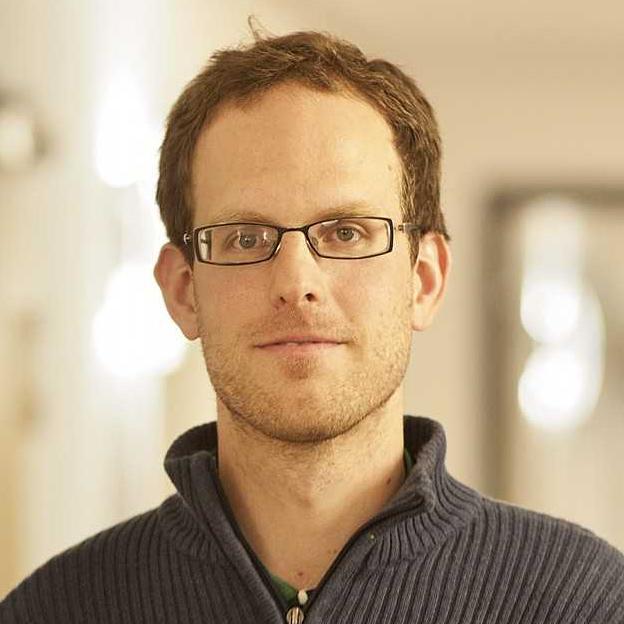 Sebastian Rimestad is a senior research fellow at the University of Leipzig, funded through the German Research Council. He defended his PhD in 2011 at the University of Erfurt on the discourse on Orthodox Christianity in Estonia and Latvia between 1917 and 1940 (published 2012 as “The Challenges of Modernity to the Orthodox Church in Estonia and Latvia (1917-1940)” by Peter Lang). His second book dealt with Orthodox Christians in Western European minority situations and was published as “Orthodox Christian Identity in Western Europe. Contesting Religious Authority” by Routledge in 2021. His current projects involve the evolution of confessional cultures in early modern Poland-Lithuania on the one hand and the analysis of religious conversion on the other. Moreover, since the Russian attack on Ukraine in early 2022, he is in demand as an expert on religious aspects of Russian-Ukrainian relations.
Sebastian Rimestad is a senior research fellow at the University of Leipzig, funded through the German Research Council. He defended his PhD in 2011 at the University of Erfurt on the discourse on Orthodox Christianity in Estonia and Latvia between 1917 and 1940 (published 2012 as “The Challenges of Modernity to the Orthodox Church in Estonia and Latvia (1917-1940)” by Peter Lang). His second book dealt with Orthodox Christians in Western European minority situations and was published as “Orthodox Christian Identity in Western Europe. Contesting Religious Authority” by Routledge in 2021. His current projects involve the evolution of confessional cultures in early modern Poland-Lithuania on the one hand and the analysis of religious conversion on the other. Moreover, since the Russian attack on Ukraine in early 2022, he is in demand as an expert on religious aspects of Russian-Ukrainian relations.
Associate members
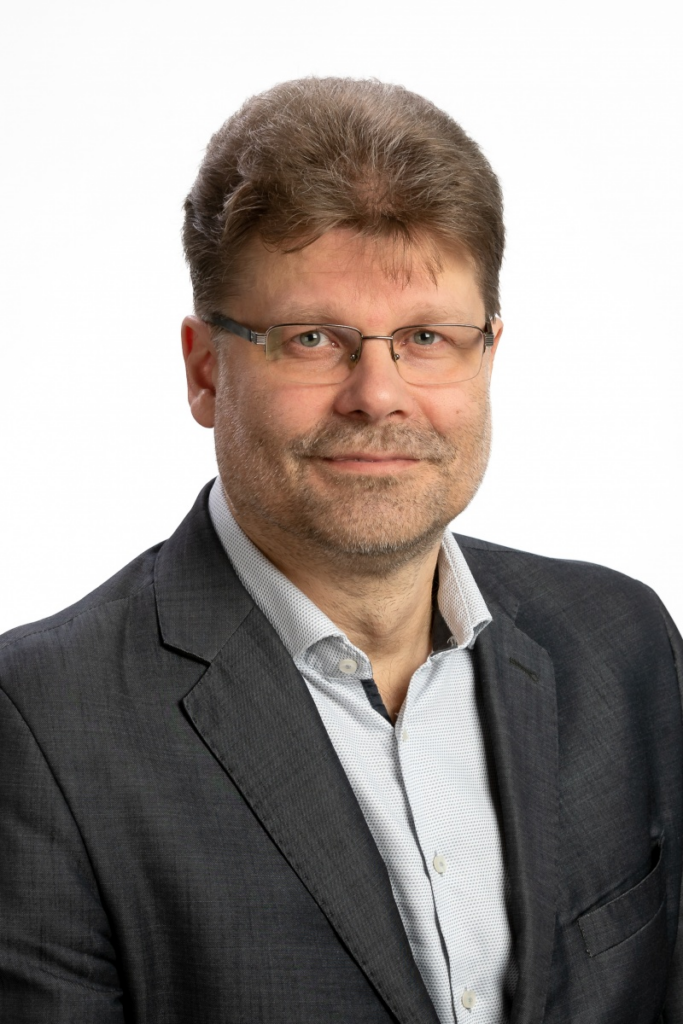 Riho Altnurme is Professor of Church History at the School of Theology and Religious Studies and Vice Dean for Research at the Faculty of Humanities and Arts, University of Tartu. He is a specialist on 19th and 20th century church history, in context of church-state-society relations. His research interests include history of theology in Estonia, methodology and historiography of church history, secularization, interconfessional relations combined with national(ist) ideas, particularly Lutheran-Orthodox-Roman Catholic relations, also Baltic German heritage in Estonian context. In 2011-2015 he managed the research group of religious studies at the Centre of Excellence of Cultural Theory (CECT). Representative of Estonia in Commission Internationale d’Histoire et d’Études du Christianisme (CIHEC, www.cihec.org), member of Wissenschaftliche Gesellschaft für Theologie (WgTh, http://www.wgth.de). Member of editorial boards in several journals in Baltic states, co-founder of International Network of Baltic Church Historians (INBCH, http://www.helsinki.fi/teol/pro/inbch/) and Estonian Society of Church History (ESCH, http://www.kirikulugu.ee). He is the editor of History of Estonian Ecumenism (2009), a textbook of Estonian church history Eesti kiriku- ja religioonilugu (2018), Old religion, new spirituality: implications of secularization and individualization in Estonia (Brill, in press), co-editor (with Irina Paert) Usuteaduslik Ajakiri (“Religion and resistance”, UA, 64:1, 2013) and (with Patrick Pasture and Elena Arigita) of Religious Diversity in Europe: Mediating the Past to the Young (Bloomsbury, in press).
Riho Altnurme is Professor of Church History at the School of Theology and Religious Studies and Vice Dean for Research at the Faculty of Humanities and Arts, University of Tartu. He is a specialist on 19th and 20th century church history, in context of church-state-society relations. His research interests include history of theology in Estonia, methodology and historiography of church history, secularization, interconfessional relations combined with national(ist) ideas, particularly Lutheran-Orthodox-Roman Catholic relations, also Baltic German heritage in Estonian context. In 2011-2015 he managed the research group of religious studies at the Centre of Excellence of Cultural Theory (CECT). Representative of Estonia in Commission Internationale d’Histoire et d’Études du Christianisme (CIHEC, www.cihec.org), member of Wissenschaftliche Gesellschaft für Theologie (WgTh, http://www.wgth.de). Member of editorial boards in several journals in Baltic states, co-founder of International Network of Baltic Church Historians (INBCH, http://www.helsinki.fi/teol/pro/inbch/) and Estonian Society of Church History (ESCH, http://www.kirikulugu.ee). He is the editor of History of Estonian Ecumenism (2009), a textbook of Estonian church history Eesti kiriku- ja religioonilugu (2018), Old religion, new spirituality: implications of secularization and individualization in Estonia (Brill, in press), co-editor (with Irina Paert) Usuteaduslik Ajakiri (“Religion and resistance”, UA, 64:1, 2013) and (with Patrick Pasture and Elena Arigita) of Religious Diversity in Europe: Mediating the Past to the Young (Bloomsbury, in press).
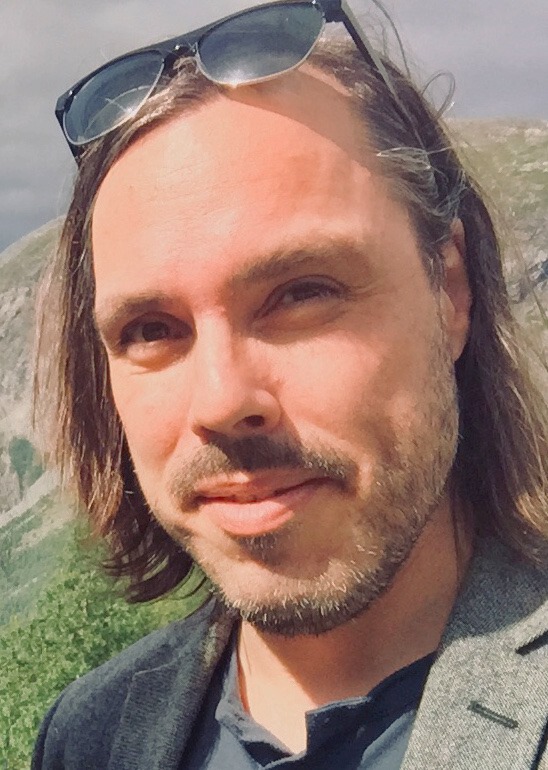 Trond Ove Tøllefsen teaches history, research skills and methods at the Theology Faculty of Uppsala University and the Open University of Catalunya. He has a PhD in history from the European University Institute (Florence, 2016). He wrote his thesis on the British occupation of Germany after the Second World War and German reactions to British reparations policies. Currently, he is working on the religious history of the Estonian Swedes, including conversions to Orthodoxy and the impact of Swedish evangelicalism. On top of his academic research, he has worked extensively in popular history, such as researching for a history programme on the Norwegian national TV broadcaster. He is currently the area expert on European transnational history and the history of German-speaking countries for the Norwegian academic encyclopaedia Store norske leksikon, where he has written about fifty articles.
Trond Ove Tøllefsen teaches history, research skills and methods at the Theology Faculty of Uppsala University and the Open University of Catalunya. He has a PhD in history from the European University Institute (Florence, 2016). He wrote his thesis on the British occupation of Germany after the Second World War and German reactions to British reparations policies. Currently, he is working on the religious history of the Estonian Swedes, including conversions to Orthodoxy and the impact of Swedish evangelicalism. On top of his academic research, he has worked extensively in popular history, such as researching for a history programme on the Norwegian national TV broadcaster. He is currently the area expert on European transnational history and the history of German-speaking countries for the Norwegian academic encyclopaedia Store norske leksikon, where he has written about fifty articles.
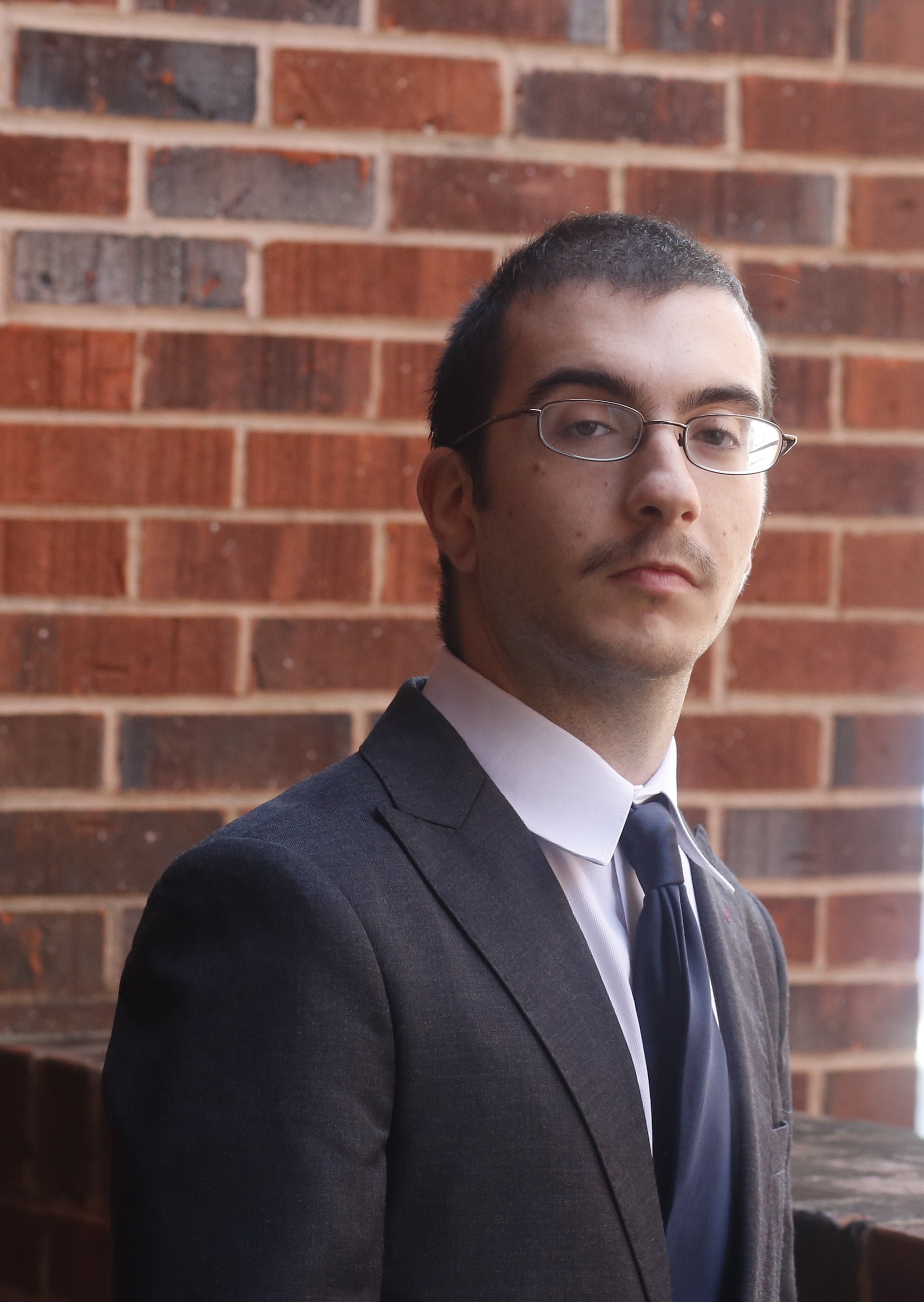 Samuel Kramer is a 2021 Estophilus Research Fellow at the School of Theology & Religious Studies at the University of Tartu. He is a doctoral candidate in History at the University of St Andrews, writing his dissertation on the political history of the early Estonian independence period, 1991 -2004. Mr. Kramer has written for regional-interest publications, including New Eastern Europe.
Samuel Kramer is a 2021 Estophilus Research Fellow at the School of Theology & Religious Studies at the University of Tartu. He is a doctoral candidate in History at the University of St Andrews, writing his dissertation on the political history of the early Estonian independence period, 1991 -2004. Mr. Kramer has written for regional-interest publications, including New Eastern Europe.


